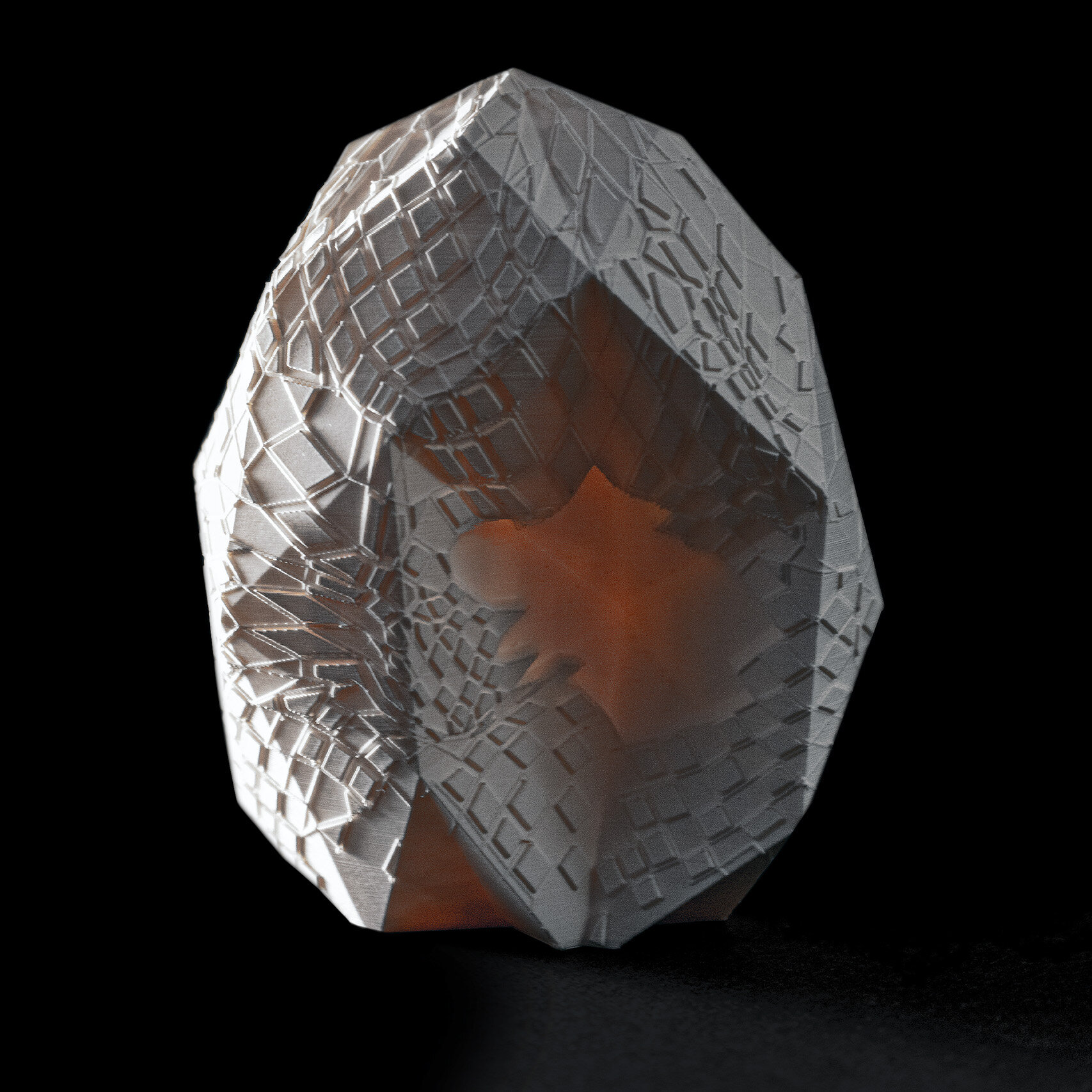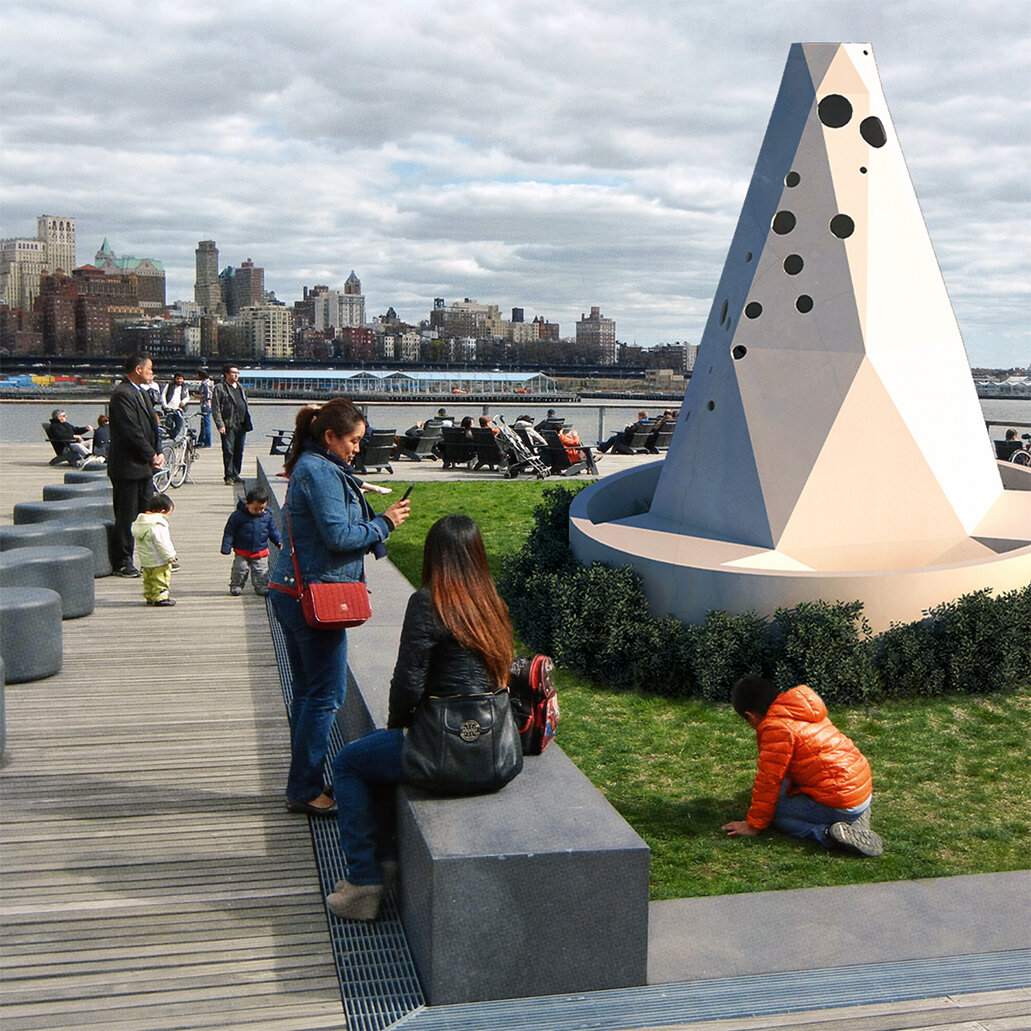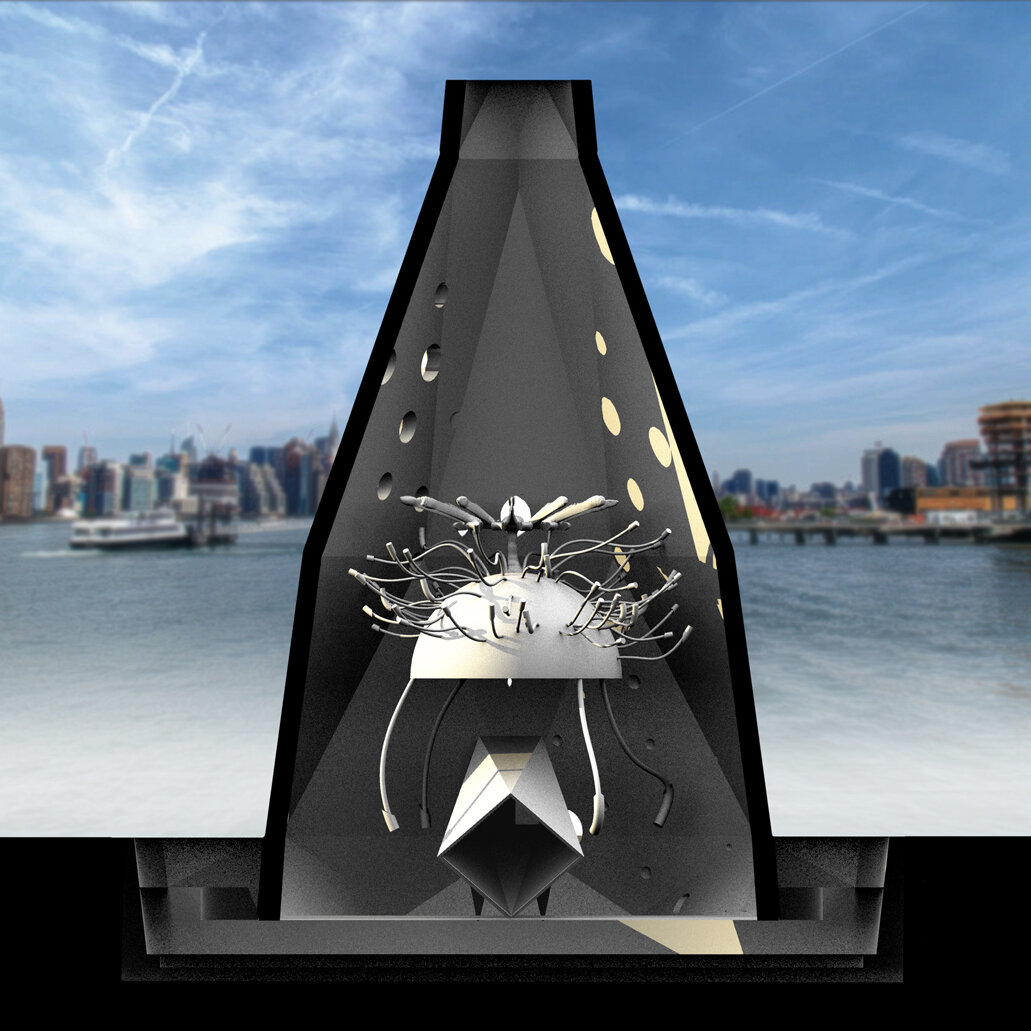Anti-Extinction Library
Community Archive of Genetic Material for Species Preservation
Anti-Extinction Library Community Archive of Genetic Material for Species Preservation East River, Brooklyn Navy Yard, NY USA, 2020.
Bringing back various animals at the brink of extinction is vital. Designed to delight and educate local citizens, the egg-shaped Anti-Extinction Library we are building for the TED Countdown event contains frozen embryos of threatened local species. Cryogenic vaults will be contained within a symbolic “egg” form that deconstructs over time. These vaults are encased within fertile soil embedded with seeds that are designed to disintegrate onsite to create a flourishing habitat for the future embryos. Each species admitted to the library is imprinted with a genetic marker containing the "Nature Bill of Rights" modified from the UN documents on human rights. These encoded markers support a narrative that all species are equal and all are necessary to a healthy planet.
The Anti-Extinction Library – a permanent shelter for the embryonic cells and DNA of rare lifeforms The work is part of a global art action: ten public artworks, аll launching today around the world, in support of Countdown – TED’s global initiative to champion and accelerate solutions to the climate crisis NYC, 10.10.2020
Three TED Fellows have teamed up to create The Anti-Extinction Library, an installation that permanently shelters the embryonic cells and DNA of rare lifeforms, designed to delight and educate local citizens. Mitchell Joachim, Chris Woebken, and Oliver Medvedik at New Lab, with Terreform ONE note that species biodiversity is vanishing at an alarming rate. Much of this devastation is because of adverse activities linked to climate change and habitat loss. The artists reverse this problem by creating a space that safeguards these organisms at their earliest and most fundamental state. The local bank has the added benefit of community engagement. The Anti-Extinction Library allows anyone to submit suggestions of local species to save. Curated by institutional members nearby, a consensus can be reached on all new additions.
The work is part of a global art action: a group of prominent artists created ten public artworks on the topic of climate change, аll launching today, in ten cities around the world – from Cairo to Cape Town, and from Vancouver to Dallas. The global art activation is part of Countdown – TED’s global initiative to champion and accelerate solutions to the climate crisis, turning ideas into action. The initiative’s goal: To build a better future by cutting greenhouse gas emissions in half by 2030 in the race to a zero-carbon world. All participating artists are part of the TED Fellows program that celebrates and uplifts exceptional talent in various fields. The artists have been specifically selected to participate in this global creative activation to raise awareness for Countdown, while translating key climate issues in ways that spur imaginations and trigger participation. “Art has the opportunity to bring this important conversation to new audiences and to make people think about the issue in new ways. We can change climate change...each of these public artworks invites people to learn more about climate change and participate in building a better future”, says Logan McClure Davda, TED’s Director of Impact. Today, Countdown launches globally with a virtual event, to serve as inspiration and a call to action to the world’s leaders — and to people everywhere — to step up and participate in building a better future. The global art activation is a collaboration between Countdown and Fine Acts, a global nonprofit creative studio for social change, that curated and coordinated the collection. Find all projects here: https://fineacts.co/countdown/
Credits: Terreform ONE, Mitchell Joachim, Vivian Kuan, Lisa Wood Richardson, Nina Anker, Mamoun Nukumanu, Connor Lambrecht, Vivian Jiang, Robin Stiefel, Sam Anderson, Dylan Pero, Adam Jonah, Adam Fried.
Project Architects: Sky Achitoff, Iyad Abou Gaida.
TED Fellows: Mitchell Joachim, Chirs Woebken, Oliver Medvedik.















